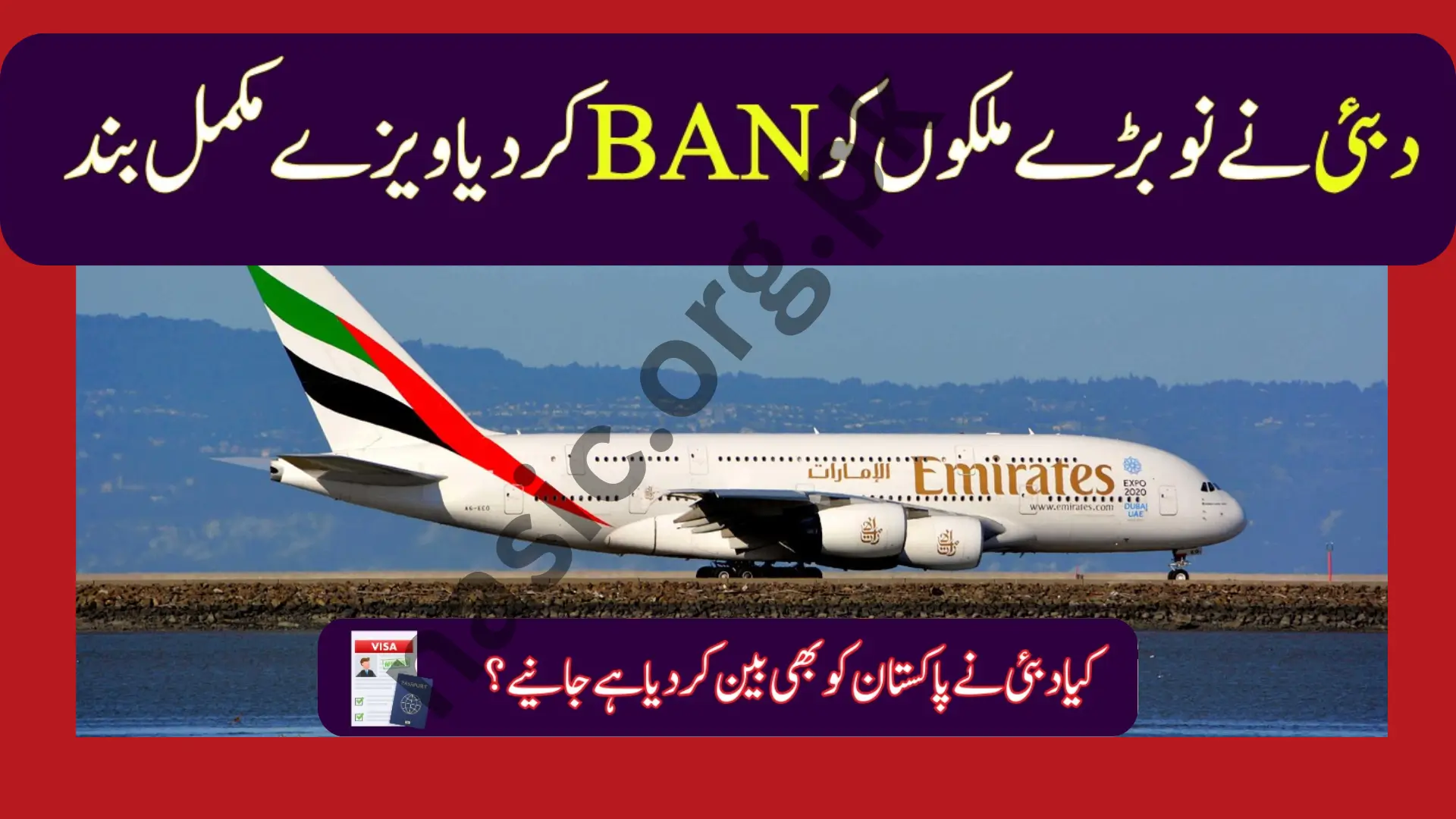UAE Ban Visit & Work for 9 Countries. The United Arab Emirates (UAE) has temporarily suspended visit and work visas for nine countries, creating concern among travelers and job seekers. This sudden move has been widely discussed because the UAE is one of the most popular destinations for employment and tourism.
In this article, we will cover the UAE visa ban update today, the list of banned countries, possible reasons behind the suspension, and what it means for applicants in 2025 and beyond.
UAE Visa Ban Countries List 2025
According to an internal immigration circular, the ban applies to both tourist visas and employment visas. Citizens of the following nine countries cannot currently apply for new visas:
| Country | Visa Status |
|---|---|
| Uganda | Suspended |
| Sudan | Suspended |
| Somalia | Suspended |
| Cameroon | Suspended |
| Libya | Suspended |
| Afghanistan | Suspended |
| Yemen | Suspended |
| Lebanon | Suspended |
| Bangladesh | Suspended |
These countries are on the official UAE banned countries list for 2025. While holders of already-issued visas can still enter and stay in the UAE, new applications are not being processed until further notice.
Why Has the UAE Imposed This Ban?
The UAE government has not publicly given an official reason for this decision. However, reports suggest three possible explanations:
1. Security Concerns
Some of the countries on the list have been facing ongoing political instability and security issues. The suspension may be part of the UAE’s effort to tighten entry rules and ensure national security.
2. Immigration Control
The UAE has previously introduced similar restrictions due to overstaying problems and documentation irregularities. This measure may help regulate the inflow of migrants and tourists until stricter rules are implemented.
3. Diplomatic and Regional Factors
Diplomatic tensions and regional conflicts may also influence such decisions. The ban could be a temporary step to monitor travel patterns more closely.
UAE Visa Ban for Nepali Applicants
Although Nepal is not included in the current nine countries, the keyword “UAE visa ban for Nepali” has been trending because many Nepali workers depend on the UAE job market. At this stage, Nepalese nationals are not affected by the 2025 suspension, but applicants are advised to keep checking for updates as the UAE can adjust visa rules at short notice.
Check your UAE visa by Emirates ID Status.
Impact of the UAE Visa Suspension
For Applicants
- Those who already hold valid UAE visas can continue to travel.
- New visa applications from the nine banned countries are not being accepted.
- Travel agents and recruitment offices have been instructed to stop submitting applications until the suspension is lifted.
For Employers
Businesses and recruitment agencies in the UAE may experience delays in hiring workers from these countries. They may need to look for alternative labor markets in the short term.
For Families
Families hoping to bring relatives to the UAE on visit visas from the listed countries must wait until the ban is removed.
History of UAE Visa Restrictions
This is not the first time the UAE has imposed a visa suspension. In previous years:
- Applications from Nigeria were restricted due to overstaying and illegal residency issues.
- Certain categories of work permits were paused for countries with high levels of undocumented workers.
These patterns show that the UAE government often introduces temporary bans to address specific concerns.
UAE Visa Ban Countries List 2026 – What to Expect
Many are searching for the UAE visa ban countries list 2026 to know if the same restrictions will continue. At present, no official information has been released about the extension of this policy into 2026. However, experts believe that the list could change depending on:
- Security conditions in the affected countries.
- Diplomatic relations between the UAE and other governments.
- Policy changes in the UAE’s immigration system.
Applicants should keep following the UAE visa ban update today announcements from official UAE immigration authorities.
What Applicants Should Do Now
If you are from one of the banned countries, here are some practical tips:
- Check with official UAE channels such as the Ministry of Human Resources and Emiratisation (MoHRE) and the Federal Authority for Identity and Citizenship (ICP).
- Avoid fraudulent agents who may claim they can still process UAE visas during the ban.
- Wait for official notifications about when the suspension will be lifted.
- Explore alternative destinations for tourism or employment until the UAE resumes visa issuance.
Key Takeaways
- The UAE has suspended tourist and work visas for nine countries in 2025.
- The ban includes Uganda, Sudan, Somalia, Cameroon, Libya, Afghanistan, Yemen, Lebanon, and Bangladesh.
- Holders of already-issued visas are not affected.
- No timeline has been provided for lifting the ban.
- The situation may change in 2026 depending on regional and immigration factors.
FAQs About UAE Visa Ban Update
1. Which countries are banned from UAE visa in 2025?
Uganda, Sudan, Somalia, Cameroon, Libya, Afghanistan, Yemen, Lebanon, and Bangladesh.
2. Can I travel to the UAE if I already have a visa?
Yes, existing visa holders from these countries can still enter and stay in the UAE.
3. Is the UAE visa ban permanent?
No, it is temporary. The UAE has introduced such bans before and lifted them later.
4. Does the ban affect Nepali citizens?
No, Nepali applicants are not affected by the current ban in 2025.
5. When will the UAE visa ban end?
No official date has been announced. Applicants must wait for further updates.
Conclusion
The UAE visa ban for nine countries in 2025 highlights the country’s strict immigration policies and the importance of compliance. While the suspension is temporary, it affects thousands of applicants from Africa and Asia who were planning to visit or work in the UAE. For now, the only option is to wait for official confirmation on when the ban will be lifted. Staying updated with the UAE visa ban update today will help applicants plan better for 2025 and even for 2026.













